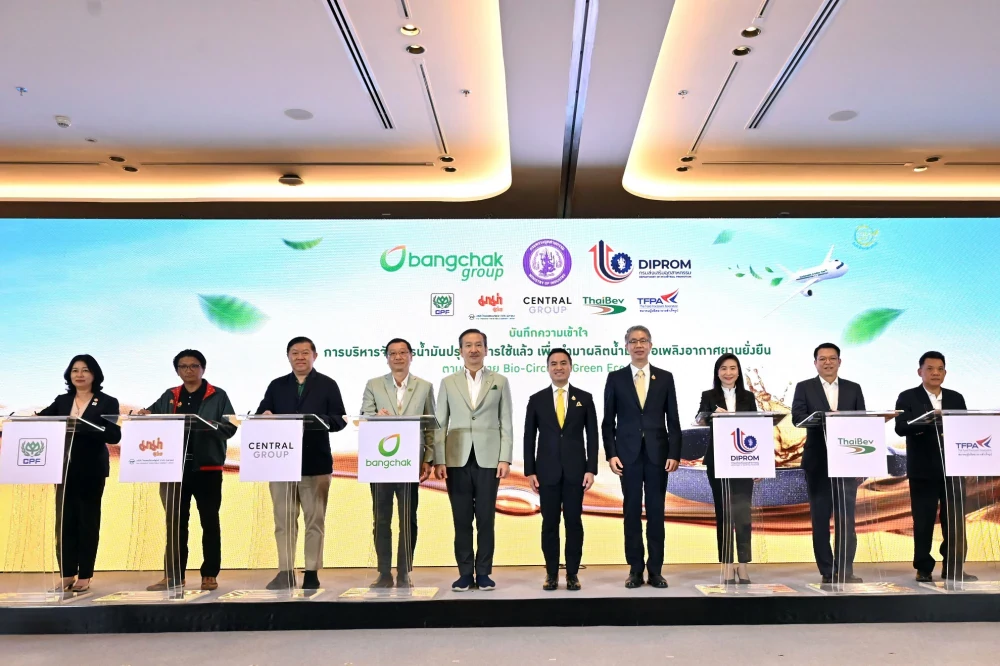
Mr. Akanat Promphan, Minister of Industry, is spearheading Thailand’s efforts to develop new economic drivers by tasking the Department of Industrial Promotion (DIPROM) to collaborate with Bangchak Corporation and five leading business organizations to accelerate Sustainable Aviation Fuel (SAF) production. This initiative, formalized through a Memorandum of Understanding (MoU), focuses on “Managing Used Cooking Oil for the Production of SAF,” in alignment with the Bio-Circular-Green (BCG) Economy policy.
The goal is to establish a supply chain network for used cooking oil (UCO) as a key feedstock for large-scale SAF production, aiming to reduce CO2 emissions and contribute to Thailand’s carbon neutrality and net-zero goals. Mr. Akanat emphasized that this collaboration supports Thailand’s ambition to enhance global competitiveness and position the country as a regional aviation hub, benefiting both local producers and global trade.
Dr. Nattapol Rangsitpol, Permanent Secretary of the Ministry of Industry, highlighted the Ministry’s commitment to building a collaborative network for SAF production, with a focus on securing UCO as a feedstock. The MoU was signed between the Ministry of Industry, DIPROM, and Bangchak Corporation, along with key private sector partners, including Central Group, Thai Beverage, Charoen Pokphand Foods, Thai President Foods, and the Thai Food Processors Association. This partnership will create a robust UCO supply chain and support Thailand’s aviation industry in meeting international standards.
Ms. Natthinya Netyasupha, Director-General of DIPROM, explained that DIPROM is working with industry stakeholders to analyze SAF demand, production capacity, and domestic feedstock supply, such as UCO, palm oil, and sugarcane by-products. The first phase of the collaboration will focus on developing UCO collection mechanisms from both industrial and service sectors.
Mr. Chaiwat Kovavisarach, CEO of Bangchak Corporation, expressed the company’s commitment to advancing SAF production in line with Thailand’s BCG policy, producing 1 million liters of 100% Neat SAF daily under the International Sustainability and Carbon Certification (ISCC) system. However, he called on policymakers to address key challenges, such as diversifying feedstocks and establishing a clear national SAF adoption mandate, including SAF blending requirements and supporting incentives, to help build a sustainable SAF ecosystem in Thailand.
Related
Source link



